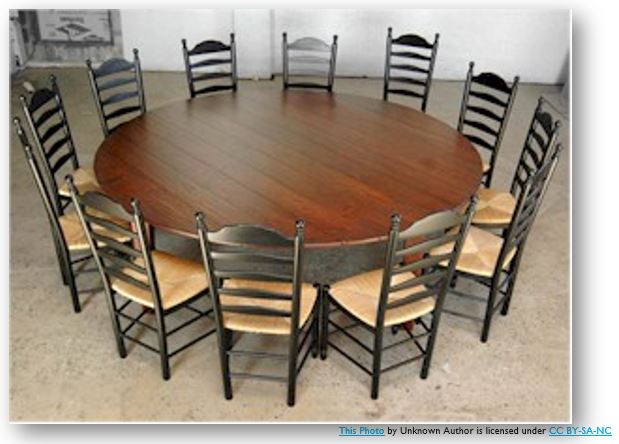Introduction - Baptism, Call, and Membership
Before leaders are called to serve within a congregation in ordained ministry, they profess their faith and make commitments about becoming a member of Christ’s church reflected in their community. Within the Presbyterian Church (U.S.A.), membership includes promises about living within the congregational community.
The PC(USA) Book of Order says this about membership, “In Jesus Christ, God calls people to faith and to membership in the Church, the body of Christ” (G-1.0301). The Book of Order also states:
... A faithful member bears witness to God’s love and grace and promises to be involved responsibly in the ministry of Christ’s Church ...
proclaiming the good news in word and deed,
taking part in the common life and worship of a congregation,
lifting one another up in prayer, mutual concern, and active support,
studying Scripture and the issues of Christian faith and life,
supporting the ministry of the church through the giving of money, time, and talents,
demonstrating a new quality of life within and through the church,
responding to God’s activity in the world through service to others,
living responsibly in the personal, family, vocational, political, cultural, and social relationships of life,
working in the world for peace, justice, freedom, and human fulfillment,
caring for God’s creation,
participating in the governing responsibilities of the church, and
reviewing and evaluating regularly the integrity of one’s membership, and considering ways in which one’s participation in the worship and service of the church may be increased and made more meaningful. (G-1.0304)
F-1.0301 The Church Is the Body of Christ
The Church is the body of Christ. Christ gives to the Church all the gifts necessary to be his body. The Church strives to demonstrate these gifts in its life as a community in the world (1 Cor. 12:27–28):
The Church is to be a community of faith, entrusting itself to God alone, even at the risk of losing its life.
The Church is to be a community of hope, rejoicing in the sure and certain knowledge that, in Christ, God is making a new creation. This new creation is a new beginning for human life and for all things. The Church lives in the present on the strength of that promised new creation.
The Church is to be a community of love, where sin is forgiven, reconciliation is accomplished, and the dividing walls of hostility are torn down.
The Church is to be a community of witness, pointing beyond itself through word and work to the good news of God’s transforming grace in Christ Jesus its Lord.
Letty M. Russell, a twentieth century Presbyterian theologian, recognizes that some churches do not take seriously the purpose of the church or the call of individual members when they do not affirm the full humanity of all people. She envisions a church that empowers members and recognizes Christ as the host. The metaphor she uses is that of a round table in a “household of freedom”[1] where all people gather around as partners in ministry connecting to the world and each other in faith and for a life of reflection and action. The table is “a symbol of hospitality and a metaphor for gathering for sharing and dialogue.”[2]
 Russell
describes leadership around that table in terms of 1 Corinthians 12 and a
Pauline understanding of a distribution of spiritual gifts in the community of faith.
Each gift comes with power, not one greater than the other.[3] Leaders,
in this interdependent paradigm, have authority of purpose rather than authority
of position. The community identifies and empowers leaders and “assist(s) members
of the congregation in making use of their gifts in the service of Christ’s love
in the world.”[4]
The power the leader with purpose exercises, in this model, is in personal
relation. It is power that is grounded in concepts like interdependence, intentionality,
and persuasion.[5]
Leaders with authority grounded in purpose humbly recognize that they are servant
leaders not leaders with servants.[6]
Russell
describes leadership around that table in terms of 1 Corinthians 12 and a
Pauline understanding of a distribution of spiritual gifts in the community of faith.
Each gift comes with power, not one greater than the other.[3] Leaders,
in this interdependent paradigm, have authority of purpose rather than authority
of position. The community identifies and empowers leaders and “assist(s) members
of the congregation in making use of their gifts in the service of Christ’s love
in the world.”[4]
The power the leader with purpose exercises, in this model, is in personal
relation. It is power that is grounded in concepts like interdependence, intentionality,
and persuasion.[5]
Leaders with authority grounded in purpose humbly recognize that they are servant
leaders not leaders with servants.[6]
For Reflection and Discussion:
Think about some of the roles that you have held in your life, volunteer and paid, chosen by self and chosen by others, and the stories remembered vividly from those roles. Consider some abilities or learnings in one or more of those roles.
Identify a time in your life that clearly embodies when you have “come alive” and/or pleased yourself and God. What did you notice? What stands out to you about that experience?
[1] Letty M. Russell, Household of Freedom: Authority in Feminist Theology (Philadelphia: Westminster John Knox Press, 1987), 25–26.
[2] Letty M. Russell, The Church in the Round: Feminist Interpretation of the Church (Louisville: Westminster/John Knox Press, 1993.), 17.
[3] Ibid., 55.
[4] Ibid., 66.
[5] Anna Case-Winters, God’s Power: Traditional Understandings and Contemporary Challenge. (Louisville: Westminster John Knox Press, 1990), 211–12.
[6] Russell, The Church in the Round, 67.